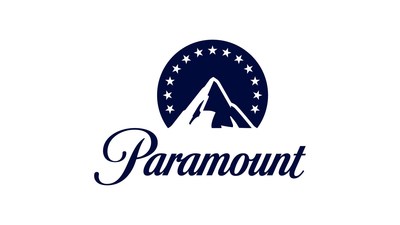Voices at Viacom: “Diversity and Inclusion Is About All of Us”
Wincie Knight, senior director of global inclusion strategies for Viacom, on championing a sense of belonging.

Originally published by Viacom
It’s rare that Wincie Knight can make it through a conversation without mentioning the importance of inclusion in her workplace.
Knight, senior director of global inclusion strategies, has worked at Viacom for a very long time, she says. She began at Nickelodeon, later worked in production, and ultimately received her master’s degree in organizational behavior. That led into her current role in London five years ago, when she joined the Viacom team dedicated to making an inclusive and accepting workplace.
“The OGI is really important to the business, because I believe it gives a real insight into demographics, pockets of people, that may not necessarily be at the top table,” Knight explains.
On Sept. 27, the Viacom UK office wrapped its second Inclusion Week, with a slate of panels and events helping employees feel like they belong. Last year’s events were such a success that the company brought Inclusion Week to its U.S. offices earlier in the month.
“The Office of Global Inclusion came to the UK last year to really help spread the word of inclusion and champion inclusion within the business,” Knight explains. “I think with the great inspiring schedule that we had in the UK last year, it was only right to roll that out over in the U.S., to inspire our colleagues across the pond.”
Here’s Knight on why OGI is an important part of Viacom’s business and an integral part of any organization:
Nicole Bitette: What is the purpose of OGI and why is it important for Viacom?
Wincie Knight: The acronym stands for Office of Global Inclusion, and I believe the OGI is here to champion difference. It’s to enrich the mix, it’s to make employees feel like they belong. We do this through a range of ways. One of the best ways I can say is through our employee resource groups. It’s a way of giving a voice to minority groups which helps make the business smarter.
NB: How do you describe what you do to your friends and family?
WK: I really just say I champion equality for the business, and anyone that knows me somehow, somewhere, my conversation will always go towards diversity inclusion. I don’t know how I manage to do it, but I always get into a conversation regarding diversity inclusion. So, I live and breathe my job.
NB: Diversity and inclusion are two buzzwords right now, but how do you define them?
WK: Diversity just means a range of different people. That’s simply what that means. I think the concentration really should be on inclusion, because inclusion is about making loads of different people feel like they fit in, like they’re treated equally. I think that the next word, really, that we should be focusing on is belonging. So, making sure that people feel, that here in our organization, and they’re included and they feel like they belong.
NB: What is UK Inclusion Week?
WK: In the UK, we have National Inclusion Week, which is always the last week of September. Last year, we ran a great Inclusion Week that struck the line of, “Be You. Belong.” This year, the line, again, is, “Be You. Belong,” because I believe it’s really important to build on the foundation of what we’ve already worked on, because lots of diversity inclusion initiatives start and they don’t follow on. So we’re following on that same theme.
It’s all about allyship, helping everyone understand that we all have the ability to make others feel like they belong. If we all concentrate on that, we create an inclusive environment.
“Be You. Belong” is really powerful, because sometimes people believe that diversity inclusion is only for a minority group, and I think the strap line of “Be You. Belong” really showcases that diversity and inclusion is about all of us. We are all different, and I’m sure that we all want to be included.
NB: What inspires you about your role?
WK: It’s great to work for an organization that champions diversity and has a great understanding that diversity inclusion is critical to our business. For us to be successful, we need to have different people within the organization, because for our audience, we need to reflect society within our own organization to be successful in creating content that people want to see.

